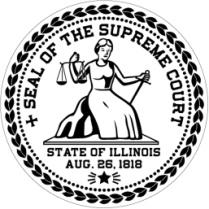Quick Take on Illinois Supreme Court Opinion Issued Thursday, August 2

The Illinois Supreme Court handed down one opinion on Thursday, August 2. The court reversed a summary judgment in favor of the City of Danville in a case in which a plaintiff sued the municipality after tripping and falling on an uneven seam in a sidewalk.
By Joanne R. Driscoll, Forde Law Offices LLP
On a subject frequently visited by the Illinois Supreme Court, tort immunity, the Court was called upon to refine the contours of sections 2-109 ad 2-201 of the Local Governmental and Governmental Employees Tort Immunity Act (Act) (745 ILCS 10/2-109, 2-201 (West 2012)) and to determine whether section 3-102(a) of the Act (id. § 3-102(a)) supersedes those provisions. The majority opinion and the concurrence provide an interesting read on statutory interpretation.
The plaintiff in this case tripped and fell on an uneven seam in a sidewalk in the commercial area of the city of Danville. The record showed that City officials conducted a walk-through of that area, identified sidewalk areas of concern, and then made determinations on a case-by-case basis, after considering certain factors, as to which sections of sidewalk would be repaired, replaced, or removed. The officials did not have specific recall about the decision not to repair the sidewalk slab in question.
Addressing section 3-102(a), the Court reiterated case law holding that this section merely codifies the common law duty of a local public entity to maintain its property in a reasonably safe condition, does not grant tort immunity and, thus, does not supersede sections 2-109 or 2-201 of the Act. Applying the discretionary immunity defense under section 2-201 and construing the Act strictly against the City, the Court reversed the grant of summary judgment to the City, holding that the City did not meet its burden of proof showing its decision-making process with respect to the specific site of the plaintiff’s accident. The Court also rejected the City’s alternative argument that the sidewalk defect was de minimis, holding that a question of fact existed.
A special concurrence by Justice Thomas, joined by Justices Kilbride and Theis, agreed with the majority’s reversal of summary judgment but disagreed with its analysis and application of section 3-102 of the Act. The concurrence concluded that section 3-102 expressed a clear legislative intent that the common-law duty delineated in that provision applied “[e]xcept as otherwise provided in this Article” (745 ILCS 10/3-102(a)) and that section 3-102 supersedes the discretionary immunity of section 2-201 because it falls within the “otherwise provided by [s]tatute” language in section 2-201 (id. §2-201).
The concurrence also disagreed with the majority’s holding that section 3-102 merely codified a common law duty. According to the concurrence, section 3-102 must at least be read as “a hybrid immunity provision” because it places limitations on liability when the public entity is without notice of the unsafe condition. The concurrence reasoned that this interpretation is supported by “[e]xcept as otherwise provided in this Article” language of that provision.


Member Comments (1)
How about the legislature stepping in to clarify its intent with an amendment or two.